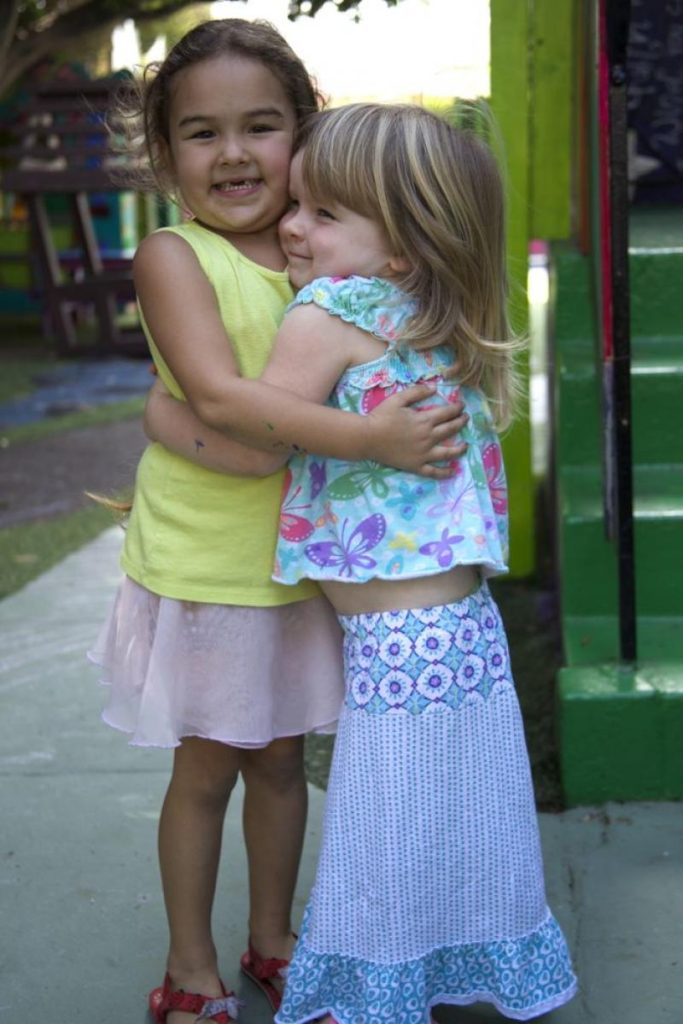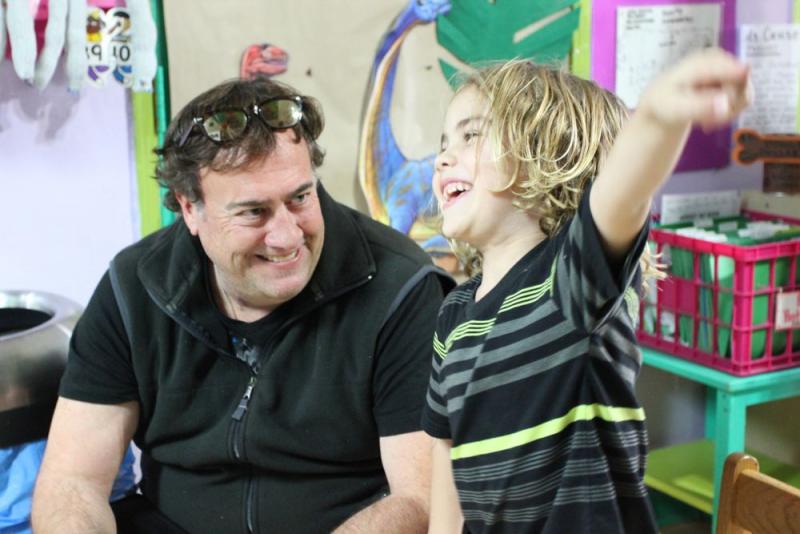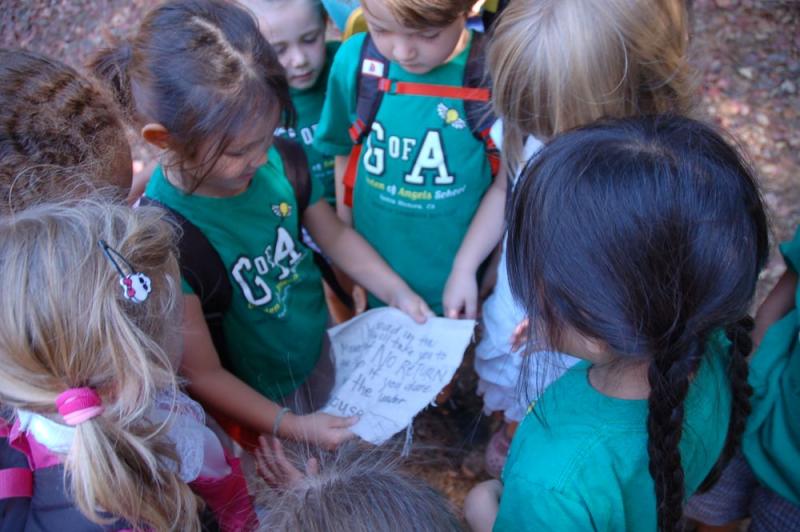Multi-Age Education
We believe in small schools where students are known

Multi-Age Education
We believe in small schools where students are known. Multi-age Education has existed for centuries, it dates back to the one room schoolhouse. It deliberately places students together with differences in age and abilities to facilitate the overall development of each child in a comfortable, family-like community of learners throughout their years at Garden. It is a recent phenomenon to divide learning levels by age or grade. Students stay with our Team Teachers for more than one year. Curriculum is created according to developmental stages rather than chronological age. The role of a Garden Teacher is, “facilitator of learning.” Garden of Angels School has chosen Multi-age education for the Pre-school through fifth Grade classrooms after comparing the Garden’s benefits to the current educational system. Garden of Angels is committed to creating well-rounded individuals. Our Garden focuses on a paradigm shift from a graded perspective to one of personal development and constructivism. We do not mark our students with a grade. We acknowledge the areas in which they have demonstrated growth, potential and success, then guide them to practice those areas where they require more support. We then support students academically, socially, emotionally, creatively and physically. This approach is much more effective because students are much more receptive when they know that growth is needed. We observe tremendous breakthrough in overall progress, more than could happen through a graded paradigm, since once they are stuck with a grade, there is nowhere for them to go; they are labeled by the mark. Our culture operates with a confused understanding of human development: We have inverted the most fundamentally sound and organic way of supporting human growth and we do things precisely backwards. Technology has its place, but we risk an artificial relationship that disconnects us from the natural world and our communities. It can desensitize our human relationships and the good of the whole.

Multi-age teaching
Garden of Angels lives by the philosophy that students develop at their own pace. The social nature of Multi-Age Education has a great impact and offers benefits for a wide range of learners. Multi-Age Classrooms cause our students to feel more secure because of their stronger relationships, strengthened by time. Children, who share the same age can range in ability level tremendously. No two children are ever at the same level at the same time. A curriculum must be designed to challenge every child. This curriculum must creatively introduce materials in an interesting and engaging manner, one that accommodates all learning styles. Multi-Age Education in combination with the “Garden Philosophy†is designed to foster and harvest these needs. In order to create a well-rounded individual, growth must occur academically, socially, emotionally, physically and spiritually.
Multi-age teaching makes sense. In developing relationships with a classroom of students and having them function at their best possible level, a thorough assessment needs to be completed, which includes an understanding of what is important to students personally. Personal preference is often disregarded and considered irrelevant in much of education today. Education becomes defined as mechanical when academic performance diminishes the possibility of getting students actively enrolled in their education. When a teacher knows what each student’s learning style is, a trusting relationship can then be formed between teacher and student regarding what their learning it will look like. In most schools this process needs to repeat itself every year, causing the first quarter of each new school year to be an unavoidable review and minimally productive. In a Multi-Age Classroom, once the foundation with each child is created, productivity soars until the child graduates from the program. Portfolio: We use a Portfolio approach to collect and present information in an ongoing fashion, as part of the students daily learning. The four main goals of portfolio are : 1. To document a students growth and progress. 2. To support and guide instruction. 3. To communicate information about the student to both student and parent. 4. To practice presenting in front of an audience and conveying ideas included in the Student Portfolio… Speech and Articulation. Important goals of Multi-Age Education are: 1. Valuable feedback 2. Indications that student is reaching their goals 3. To be able to offer suggestions for new strategies that aide the student in renegotiating comprehension and whole knowledge.

Teachers Develop a Profound Impact
Teachers develop a much more profound, impacting, relationship with each student under this philosophy. Multi-Age Education provides a family-style environment in the classroom. Academically, the beneficial result of Multi-Age Education is a creative, hands-on, research-based curriculum. Each child is placed in a group that matches their unique ability. We assist our students in bringing forth their critical thinking skills, creativity, compassion, curiosity and ability to participate in a robust education. Elementary school introduces basic concepts and builds on them every year. In Multi-Age, the concept is introduced and then graduates to rich and sophisticated ideas surrounding the concepts. This allows every child to grow and be challenged. Our focus is continual progress rather than being promoted once a year or making our students wait until the next year to move forward in their curriculum. Our teachers encourage students to apply skills and strategies to help other students learn as well.
Students acting as teachers
One of the best experiences possible is for children to act as teachers. Inherently, it is a cooperative work environment with the older students mentoring the younger children. Teaching is the best way to comprehensively learn. The best learning takes place as our students work with others of different strengths, needs, abilities, talents and ages. Our students show increased self-esteem, cooperative behavior, better attitudes toward school, increased prosocial behavior, enriched personal relationships, a decline in discipline issues, a stronger sense of belonging and celebration of individual differences. Older students develop mentoring and leadership skills and set class routines for entering students. Younger students learn to apply themselves and raise their abilities and responsibilities, leadership skills, nurturing behaviors and a greater sense of self. Students keep track and make choices about how they will reflect their learning. Our students practice brain compatible and project-based learning and a willingness to work cooperatively together. Our older students are groomed to be strong, confident and experienced role models for our younger students and in response our younger students consistently strive to learn more and perfect their level of independence to match their older mentors. This approach also teaches older students a deeper understanding of that skill when they model or teach it. There is a misconception that older students mentoring and leadership skills, could be a detriment to younger students. It is the opposite! Our whole, Multi-Age Education requires them to be accountable, appropriate, and positive mentors. Mentoring is reinforced through the teachers, in an environment that exudes these principles. Our youngest students are excited that they will grow into the role model and they become excited about entering our Multi-Age Classroom. Nothing is more interesting to our younger students than another student who is older and has skills they want to acquire. We form parent/school partnerships, making sure parents have a role and we extend our approach to help them implement at home learning and to help them set goals for their child’s learning as well. We communicate with parents regularly about how and what their child is learning, accomplishing, interested in and their abilities and attitude. We stand for students of all ages being able to coexist together.
Why Multi-Age at Garden?
The “Garden Philosophy” is fulfilling, addresses whole and specific needs and inspires joyful people who are passionate about education, their lives and the lives of others.
